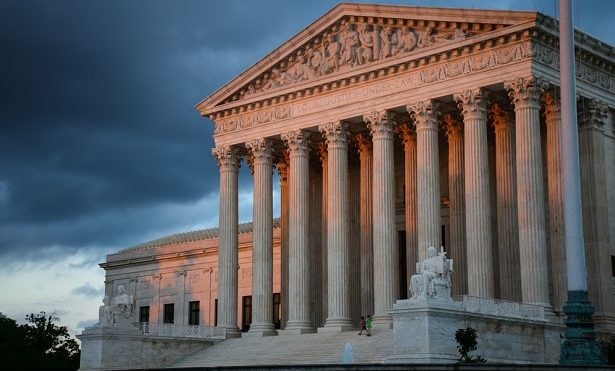 In a unanimous decision issued last week, the U.S. Supreme Court established a new framework for determining whether an employer can lawfully deny an employee's request for a religious accommodation on the grounds that the requested accommodation constitutes an "undue hardship."
In a unanimous decision issued last week, the U.S. Supreme Court established a new framework for determining whether an employer can lawfully deny an employee's request for a religious accommodation on the grounds that the requested accommodation constitutes an "undue hardship."
Title VII of the Civil Rights Act of 1964 prohibits covered employers from discriminating against employees because of religion. This means that an employer must accommodate the religious needs of employees whenever doing so will not create "undue hardship" for the employer's business. Common examples of requested religious accommodations include days off from work for religious observances or holidays, as well as break time and space in the workplace to pray. While some employers grant these and other religious accommodations, others deny them on the grounds that granting the accommodations would impose undue hardships on the employers' operations.
Based on a Supreme Court decision issued almost 50 years ago, Trans World Airlines, Inc. v. Hardison, most courts have held that employers can show that a requested religious accommodation amounts to an undue hardship by presenting evidence that providing the accommodation would require the employer to bear more than a "de minimis" cost. Such costs might be financial, operational, or logistical, making the undue hardship showing an arguably easy evidentiary burden for employers to meet.
Recommended For You
Not anymore. Now, to clarify the context of undue hardship, the unanimous court held that an employer can deny a religious accommodation only by showing that the burden of granting the accommodation would result in substantial increased costs in relation to the conduct of the employer's business.
The facts underlying the decision in Groff v. DeJoy give better context for its holding. The plaintiff, Gerald Groff, is an Evangelical Christian who delivered mail for the U.S. Postal Service. When the Postal Service began requiring delivery people to work on Sundays in order to deliver packages for Amazon, Groff objected based on his belief that Sundays should be devoted to worship and rest, rather than secular labor and transportation of worldly goods.
The Postal Service denied Groff's accommodation request for Sundays off, reasoning that granting his request would constitute an undue hardship – i.e., create more than a de minimis cost for the Postal Service. Groff sued, and the Third Circuit Court of Appeals held that his case was correctly dismissed because the Postal Service met the undue hardship standard by showing that exempting Groff from Sunday work "imposed on his coworkers, disrupted the workplace and workflow, and diminished employee morale."
Relying on the plain meaning of the words themselves, the Court reasons in Groff that adding the modifier "undue" before the word "hardship" must mean "that the requisite burden … or adversity must rise to an 'excessive' or 'unjustifiable' level." The Court contrasted that against the meaning of "de minimis," which it interprets as "very small or trifling."
The Court gave relatively de minimis guidance on what the new "substantial increased cost" standard means. It explains, "courts must apply the test in a manner that takes into account all relevant factors in the case at hand, including the particular accommodations at issue and their practical impact in light of the nature, size and operating cost" of the employer. In Groff's case, for example, this means that, "it would not be enough for an employer to conclude that forcing other employees to work overtime would constitute an undue hardship. Consideration of other options, such as voluntary shift swapping, would also be necessary."
Besides that example, however, the Court declined to elaborate on what the new standard means, and it sent Groff's lawsuit back to the lower courts to consider all relevant factors in the case as to determine whether the Postal Service could still prevail under the new "clarified context-specific standard."
Last, of note, the Court did reject one contention, and that is the suggestion that an employer can legally deny a religious accommodation based on other employees' animosity. The Court explained in eloquent terms:
"[A] hardship attributable to employee animosity to a particular religion, to religion in general, or to the very notion of accommodating religious practice cannot be considered 'undue.' If bias or hostility to a religious practice or a religious accommodation provided a defense to a reasonable accommodation claim, Title VII would be at war with itself."
Employers must now show that a requested religious accommodation would result in substantial increased costs in relation to the conduct of their business before denying the accommodation on "undue hardship" grounds.
Co-workers' resistance to a requested accommodation that is grounded in animosity to the religious practice in question or religion in general will never be a basis upon which an employer can deny an accommodation request.
Randi Winter, Spencer Fane LLP
© 2025 ALM Global, LLC, All Rights Reserved. Request academic re-use from www.copyright.com. All other uses, submit a request to [email protected]. For more information visit Asset & Logo Licensing.







